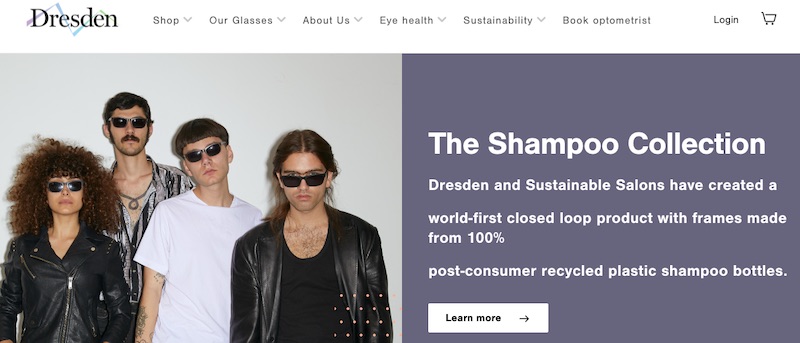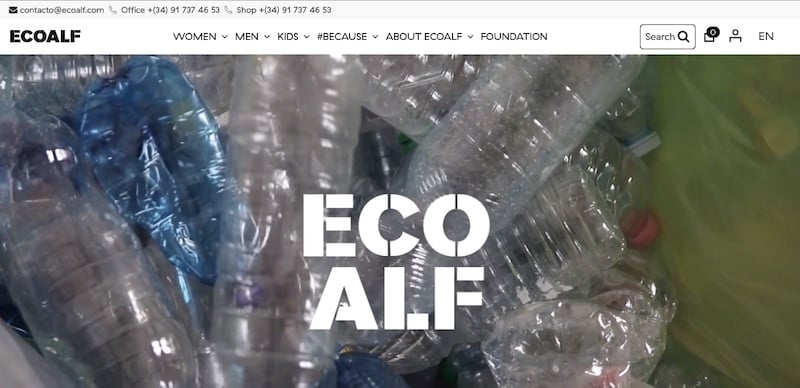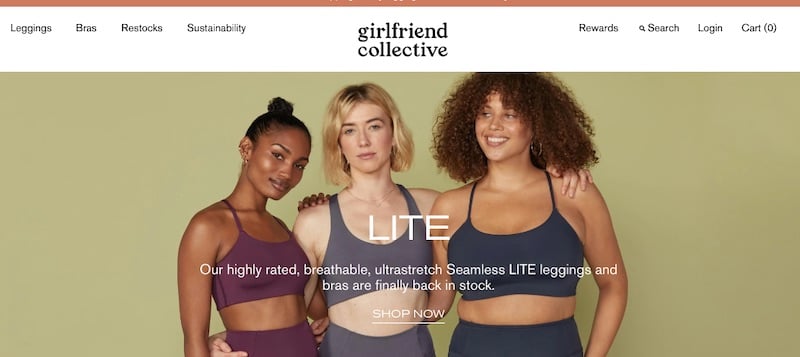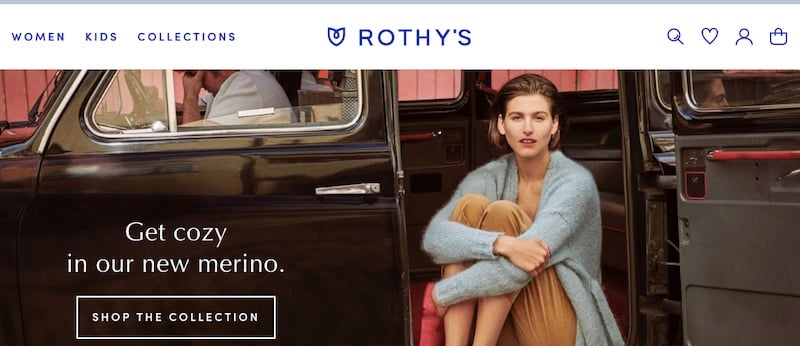Most of us like to think that the plastic items we deposit in a recycling bin are actually recycled. Unfortunately, since January 2018 when China stopped accepting plastics from Western countries, a lot of plastic waste is either going into landfills or sitting around in stockpiles.
Before China halted inbound shipments, 70 percent of the world’s plastic waste was sent to that country — about 7 million tons a year. Indonesia, Malaysia, Thailand, and Vietnam began taking what China no longer wanted, but within a year they were overwhelmed with plastic waste. They too cut back.
An unlikely savior, the fashion industry, is now buying a lot of that plastic. Many companies are committing to making apparel out of recycled materials. Sometimes this movement is called “slow fashion” because it does not embrace mass production, but it is finding a loyal following of consumers willing to pay a premium for goods made from consumer waste products.
Here are five direct-to-consumer brands that are successfully making products out of recycled plastic and other recycled material.
Dresden Optics

Dresden Optics
This Australian company makes eyeglass frames from fully recyclable nylon, combining new and recycled plastic. Its business model is similar to Warby Parker: Shoppers can receive a selection of frames by mail. The company uses a closed-loop, zero-waste system, meaning it collects the production waste, cuts it up, and puts it back into the molding process.
Dresden Optics is experimenting with materials and, thus far, has made limited-edition frames from:
- Milk bottle tops from local cafes.
- Marine debris collected from New South Wales beaches.
- Waste plastics supplied by customers.
- Recycled wood chips.
- Beer keg caps.
- Fishing nets discarded by trawlers and washed up on local beaches.
Prices range from AU$99 to AU$579, depending on the type of lens. Dresden Optics has retail stores across Australia and New Zealand, and in Toronto and Hamilton, Canada.
Ecoalf

Ecoalf
Founded in 2009 in Spain, Ecoalf produces apparel and accessories for women, men, and children that are made entirely from recycled materials.
This company claims it has recycled 80 million tons of plastics. Ecoalf’s vision is to stop using natural resources in a careless way and to create the first generation of recycled products with the same quality and design as the best non-recycled products. In addition to plastic bottles, it recycles cotton and wool, as well as tires for its flip-flops.
The non-profit Ecoalf Foundation’s mission is to prevent marine pollution by trawling the ocean for plastic bottles and discarded fishing nets. It has partnered with more than 2,500 fishermen in 32 global ports, for a total of 440 sea trawlers. They have collected more than 300 tons of trash from the bottom of the Mediterranean Sea and waters around Thailand. The goal “is to clean the oceans of waste with the help of the fishing sector and to give plastic waste a new life thanks to recycling and the circular economy.”
With stores in several Spanish cities as well as Berlin, the company also sells its products online.
Elle Evans

Elle Evans
Another Australian company that is committed to sustainability, Elle Evans manufactures swimsuits, leggings, and sports bras. Eschewing mass production, Elle Evans makes each swimsuit to order, after receiving the purchase, in its Melbourne, Australia factory.
The company uses 100-percent regenerated nylon yarn made from ocean and landfill waste that was sorted, cleaned, regenerated, and purified back to its original quality in a process that it claims is less harmful to the environment than the production of virgin nylon.
Girlfriend Collective

Girlfriend Collective
Headquartered in Seattle, Girlfriend Collective obtains its post-consumer plastic water bottles from Taiwan, where 55 percent of local waste is recycled. The bottles are shredded into tiny chips, washed, and sent to Girlfriend Collective’s manufacturing facility in Vietnam, where they are further processed into small pellets. The factory is owned and operated by a Danish family with a long history in the textile industry.
The pellets are heated and spun into thread that is then spun into yarn. Next the yarn goes to a knitting factory. The company manufactures leggings, bras, tee shirts, and shorts. Each pair of leggings contains 25 recycled water bottles.
Rothy’s

Rothy’s
Rothy’s manufactures women’s ballet flats, loafers, and sneakers, as well as kids’ sneakers and loafers, out of recycled plastic. Founded in 2012 in San Francisco, Rothy’s did not bring a product to market until 2015. Originally the two founders intended to manufacture in the U.S., utilizing knitting machines in Maine. However, the employees there were used to working with leather, and it was difficult to adjust to yarn made of plastic. The founders then signed up with a contract manufacturer in China. That wasn’t satisfactory either. In January 2017, Rothy’s opened its own factory in Dongguan, China. The factory now has 450 workers and 160 machines knitting shoes 22 hours a day.
Rothy’s goal is to have zero waste in the manufacturing process. The company has repurposed 40 million water bottles thus far.
The upper knits of its ballet shoes are made from 100-percent post-consumer plastic water bottles, which are washed, sterilized, and fused into a fiber that is then knit into yarn. The uppers are sewn to a sole by hand and shipped directly to the customer or to a Rothy’s retail store, currently in San Francisco and the Georgetown district of Washington D.C. Stores are planned for Boston, Los Angeles, and New York. Rothy’s also sells women’s loafers in Nordstrom.
Rothy’s has a higher price point than other flats, both plastic and other materials. Prices range from $125 to $165, with a few special collections priced at $195. This makes it susceptible to lower-priced copycats, and the company has filed a few lawsuits, including a recent one against major shoe brand Steve Madden.
This month Rothy’s entered into a partnership with Italian designer Marta Ferri on a new line of shoes that feature merino wool as well as plastic.
Apparel from Plastic
These five brands and others have demonstrated that consumers will buy apparel that is made of recycled plastic. Some traditional brands such as Patagonia have established separate clothing lines made of recycled materials. More manufacturers and brands will likely enter the market.




